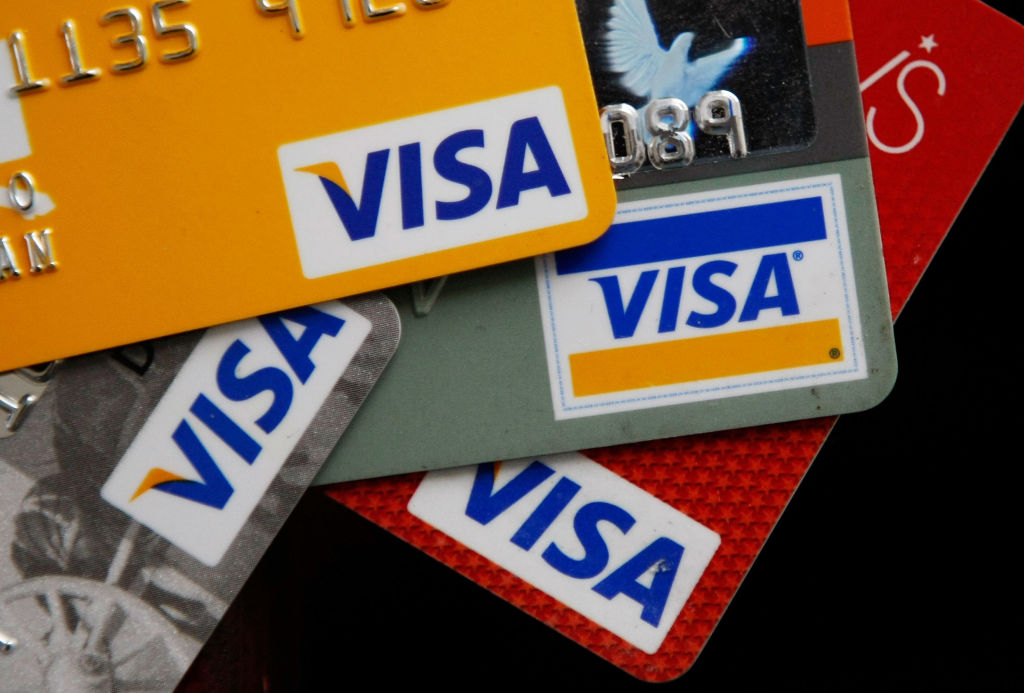To most of us, cryptocurrencies remain an esoteric world, beloved by nerds and incomprehensible to the rest of us. Does Visa’s announcement this week that it will now process payments directly in a cryptocurrency called USDCoin change that, and hasten us to a day when we will all have cryptocurrency accounts which we use to do our day-to-day shopping?
You don’t need to understand the mathematics of cryptocurrencies and blockchain to work out that the prospect of shopping with crypto is rather concerning for two reasons. Firstly, cryptocurrencies are an unregulated Wild West. While the pound in your pocket is backed by the Bank of England and the pound in your bank account is protected to some extent by Financial Conduct Authority regulations and, failing that, by the government’s deposit protection scheme, who, exactly is in charge of Bitcoin? It is like trusting your savings to a guy sat by the roadside in a banana republic. Secondly, there is the volatility of many cryptocurrencies. The value of a Bitcoin, for example, has gone from $20 to $5 to $60 over the past three years. It is currently worth $59. Had you been doing your shopping in Bitcoin it would have meant mad periods in inflation and deflation. Between putting your aubergine in your shopping basket and reaching the till it could have changed in price by some degree.
If I lived in dictatorship I might well be more inclined to look favourably on the idea of using a mobile phone-based bank account denominated in a cryptocurrency
This may be a concern if you are thinking of taking up Elon Musk’s offer of buying a Tesla with Bitcoin — I note the company’s US website still quotes its prices in dollars, so that currency is going to define the price you pay. But volatility is not such an issue with USDCoin, because it is pegged to the US Dollar, with one USDCoin exchangeable for $1. The consortium behind it, Centre, says it can maintain this value because it holds a dollar for every USDCoin issue. In other words, if you want to keep a USDCoin account, the only volatility you need worry about is the exchange value between the pound and the dollar.
But that does make you wonder: what is the point of a cryptocurrency if it is not to speculate in the wild fluctuations in value? Surely, for most people who have bought Bitcoin in recent years the whole point has been to try to create a fortune from thin air on the back of a speculative surge – an elusive fortune, in many cases. You are not going to make quick money by buying USDCoins – unless you think the dollar is about to surge.
The whole point of USDCoin is that you use it as you would your current account. You can open an account denominated in it without going through the process of opening a bank account – all you need is a mobile phone. It therefore becomes possible to shop around the world without having to prove who you are, show that you have a physical address, that you are not criminal, bankrupt and so on.
Some will see that as liberation – others as an invitation for criminals, fraudsters and so on to conduct their financial affairs away from the eyes of the taxman or the police. It is hard, though, to see cryptocurrencies enjoying their opaqueness for much longer. The more that they become used for everyday transactions, the more they will become regulated, and consequently the less useful they will become. Yet risk will remain. If you hold an account in USDCoins, for example, you have got to trust the consortium behind it. What happens if your crypto issuer goes bust?
Call me an old stick in the mud but I still think a nation state is, on balance, the entity I trust most to back a currency. But then I say that being a citizen of western democracy with a pretty stable financial and legal system – even if the government has been maxing out on its own credit card for many years. If I lived in dictatorship I might well be more inclined to look favourably on the idea of using a mobile phone-based bank account denominated in a cryptocurrency. I don’t think that Visa’s move this week will have much immediate relevance to people in Britain, but it may well boost the use of cryptocurrencies elsewhere.







Comments